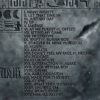Listeners:
Top listeners:
-
 play_arrow
play_arrow Cosoro Afrobeats UK's No.1 Afrobeats Radio Station

Singeli, a fast-paced and electrifying music genre born in the streets of Dar es Salaam, is poised to make history by earning a spot on UNESCO’s List of Intangible Cultural Heritage of Humanity. This move not only highlights Singeli’s cultural significance but also positions it as a global ambassador for Tanzanian music.
What Is Singeli?
Singeli is characterized by its rapid tempo, typically between 180 and 300 beats per minute, and a fusion of electronic beats, traditional rhythms, and local dialects. Emerging in the early 2000s, it gained popularity in urban Tanzanian communities, particularly among youth and street performers. The genre’s vibrant energy and grassroots origins have made it a symbol of Tanzanian identity and resilience.
In May 2025, Tanzania’s Minister for Information, Culture, Arts, and Sports, Prof. Palamagamba Kabudi, announced that the government had officially submitted Singeli’s nomination dossier to UNESCO. This submission follows a comprehensive stakeholder workshop in Dar es Salaam, involving over 120 participants from various sectors, to finalize the nomination process in partnership with UNESCO.
Minister Kabudi emphasized that Singeli is more than just music; it represents a vital part of Tanzania’s cultural heritage. He likened its potential global status to that of reggae in Jamaica and Amapiano in South Africa, underscoring the need for concerted efforts to promote Singeli internationally.
Over the years, Singeli has transcended Tanzanian borders, captivating audiences at international festivals such as Nyege Nyege in Uganda, DUO Festival in Belgium, Primavera Sound in Spain, Apporlibation in Germany, and Cora Festival in France . Artists like DJ Sisso and Maiko have been instrumental in bringing Singeli to global stages, earning acclaim and recognition for their innovative contributions to the genre.
International figures, including Kenyan musician Bien Aime Alusa of Sauti Sol, have praised Singeli’s unique sound and potential for global success. Bien believes that with proper investment and international collaboration, Singeli could achieve Grammy recognition, similar to other African genres like Amapiano.
Despite its growing popularity, Singeli faces challenges in achieving widespread international recognition. Key obstacles include limited infrastructure, lack of formal industry support, and the need for artists to adapt to global production standards. Industry experts and stakeholders emphasize the importance of government backing, investment in music infrastructure, and strategic international partnerships to elevate Singeli’s profile.
The official submission of Singeli’s nomination to UNESCO marks a significant milestone in Tanzania’s cultural diplomacy. If successful, Singeli will join a prestigious list of globally recognized cultural expressions, solidifying its status as a vital component of Tanzania’s national identity. The outcome of UNESCO’s deliberations is eagerly awaited, with hopes that Singeli will soon receive the global recognition it deserves.
Written by: Adedoyin Adedara
Recent Comments
No comments to show.
Copyright © 2025 Cosoro Radio | All rights reserved












